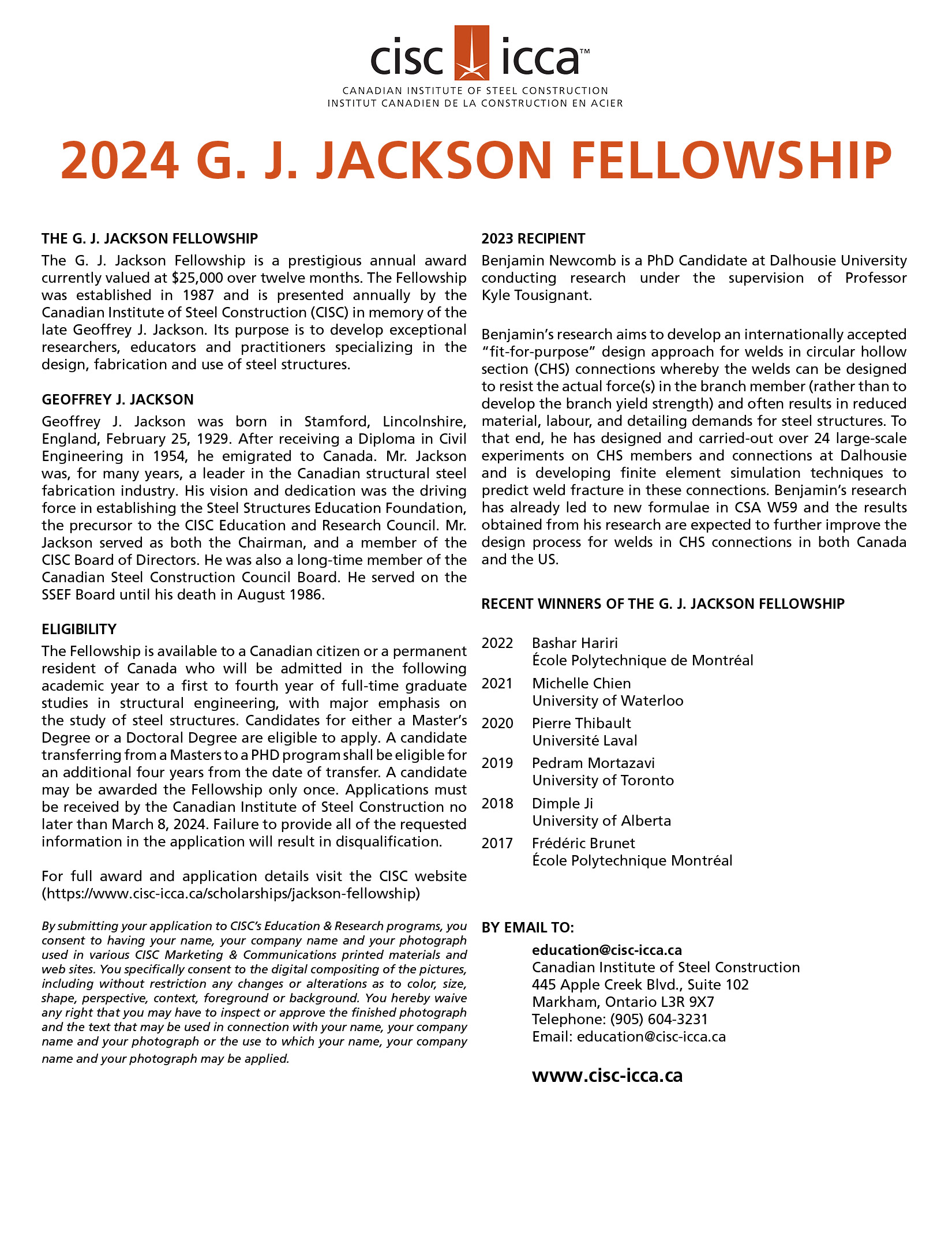Benjamin Newcomb began a Master of Applied Science at Dalhousie University in May 2020 and fast-tracked to a PhD program in September 2021. He completed his course requirements and comprehensive examinations in May 2022, and, under the supervision of Dr. Kyle Tousignant, is conducting research on weld effective lengths for circular hollow section (CHS) connections.
The aim of Benjamin’s research is to develop an internationally accepted “fit-for-purpose” design approach for welds in CHS connections wherein the welds can be designed to resist the actual force(s) in the branch member (rather than to develop its yield strength) to reduce material, labour, and detailing demands for steel structures. Benjamin has completed over 24 large-scale experiments on CHS members and connections at Dalhousie and is currently developing finite element simulation techniques to predict weld fracture in the connections.
Benjamin’s research has already led to new formulae in CSA W59 and the results obtained from his research are expected to further improve the design process for welds in CHS connections in both Canada and the US.


